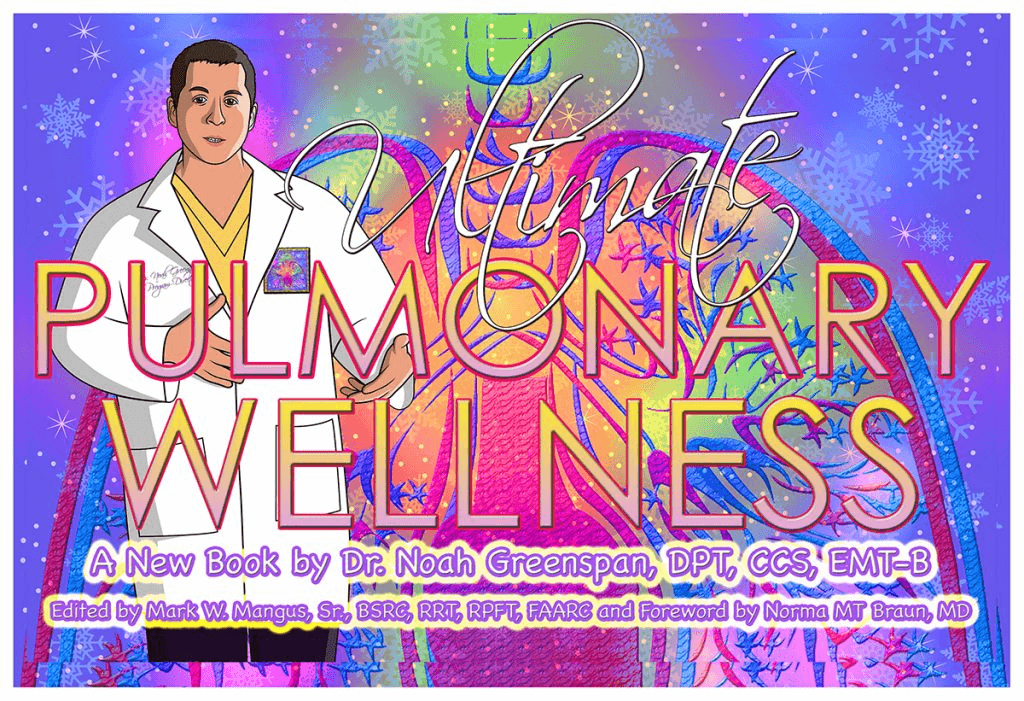
Advance Planning for Your Legacy
Ronald Reid and Ann Kelley
If you have one of the interstitial lung diseases (ILDs), you may tend to think you have a defined timeline for your life, especially when you are newly diagnosed. All too often we think we are going to die soon; somewhere in that infamous 3–5-year prognosis quoted for IPF patients. But with better medicines and exercises, that prediction of survival has changed dramatically. No one has a definitive timeline, even though we know none of us live forever. For example, people in their 20s or 30s have caught Covid-19 and died young. Car crashes or cancer have no respect for age. The ways we might die are infinitely varied; but like taxes, death is one of the certainties of life.
My name is Ron, and I have been fortunate to live an interesting and fulfilling life. Four years ago, at the age of 68, I was diagnosed with IPF. After trying and then abandoning both Ofev and Esbriet, my plan now is to let nature take its course. I have a loving wife and two grown boys, so family is very much on my mind. My partner in writing the early stages of this chapter was Ann, who unfortunately succumbed to IPF before it was completed; more about her later.
Lung diseases give you the time and opportunity to sort through your preferences and arrangements about your eventual death. One of the best things you can give your children and the rest of your loved ones is the ability to talk about matters relating to your death. These are topics that many individuals and families, including my own children, seem to have difficulty discussing; many people are uncomfortable, or even downright squeamish, speaking about death. Usually, you will have to open the door to talking about it; lightening the mood by reminding them that “none of us get out of here alive” can help.
The best time to talk about these issues is now; proactively and before problems arise and sudden decisions must be made. Most of the suggestions in this chapter could apply to anyone in their senior years, not just those with ILD.
Why is this so important?
First, planning ahead ensures that your final wishes are honored. Do you want a big funeral or a small family gathering to celebrate your life? How do you want your remains to be handled? Who has authority to speak for you if you are no longer able? Don’t leave your family guessing; let them know what you want to happen.
Most of us take great comfort in knowing those plans are in place and that we have set up arrangements as much as possible. As you will learn throughout this chapter, dying is not a simple business these days. The more various questions and uncertainties can be resolved, the less anxiety you are likely to feel as your end approaches.
Addressing these questions in advance is a wonderful gift to family or loved ones. You have removed the burden of them having to guess what you would prefer, and you set up a clear passage from this world to the next.
Dealing with the Legalities
Whether you are prince or pauper, several legal documents need to be in place to smooth your transition. Without them, the process will almost certainly be chaotic, expensive, and stressful for all involved. Three basic documents will cover most circumstances:
- Your Will
- Advance Directive for Health Care
- Durable Power of Attorney for Financial Affairs
To begin, do you have a legal Will in place? If so, well done! According to TD MoneyTalks, over half of Canadian adults don’t have a signed Will; I don’t think Americans are much different.
Unless your Will has been completed recently, you should have a fresh look to make sure that it fits with present circumstances and reflects your wishes. If necessary, update it with a lawyer (often an Elder Attorney who specializes in this area of law). For example, if you have divorced or changed your mind about where you want your money to go, a new Will is essential. The advice of a Financial Planner or a Certified Care Planner may also be useful in drawing up a Will that both respects your wishes and minimizes the tax burden associated with your death.
One aspect which is especially important is the appointment of your Executor (sometimes called Trustee). This person has the responsibility to ensure that all the steps necessary are carried out after your death and your wishes on disbursement of any assets are carried out as you directed. Your Executor must be someone you trust – a relative or a friend whom you know will be faithful to your wishes. They won’t need to do all the detailed work themselves; your Executor usually will hire a lawyer (often the one who drew up the Will for you), as well as an accountant if your estate is complex.
When my wife and I recently reviewed our Wills, one helpful suggestion made by our lawyer was to draw up a separate list of keepsakes or other physical items that we want to leave to particular individuals. This helps keep the Will shorter and cleaner and makes it easier if we change our minds or want to add items. But please remember to destroy old copies of this list if you change your mind or make changes/updates. When an elderly maiden aunt of my mother passed away, her Executors found no fewer than three conflicting lists of where she wanted her furniture to go, creating all kinds of confusion in clearing out her house.
Next in line, and equally important, is to create an Advance Directive for your health care. This document lays out your wishes if you become incapacitated and cannot speak for yourself. For example, it may specify Do Not Resuscitate (DNR) orders under certain circumstances, or a wide range of other medical treatment instructions. In some jurisdictions, these documents are known as Living Wills or other terms. Advance Directives are intended to provide your medical team and your family with a clear expression of your wishes.
You can have your lawyer draft this document for you or download templates from the internet; usually two witnesses are required when you sign. Make sure you share your Advance Directive with your family doctor and your pulmonologist, as well as with the person or persons given the authority to carry out your Advance Directive. A family meeting may also be prudent so that all family members hear your wishes directly from you.
As part of your Advance Directive, you must appoint someone close to you as your Personal Care Power of Attorney for health care (wording for this person varies among jurisdictions; often referred to as the Attorney, which is confusing because they usually have no legal training). This is the person or persons who have the legal authority to make decisions on your behalf when you are no longer able. In most cases, this would simply involve ensuring that the terms of your Advance Directive are carried out. But sometimes other circumstances arise that were not foreseen, and your Personal Care Attorney will have to make difficult decisions on your behalf in conjunction with the medical team. Almost always it is wise to have your lawyer draft this appointment for you so that there is no question about its authority.
One item you might consider including in your Advance Directive is organ donation if that is your wish. It is important for your healthcare team to be informed about the potential for organ donation in advance. While your lungs obviously won’t be of much interest except perhaps as a research resource, a surprisingly wide range of other organs could save or improve someone’s life if you chose to donate, despite having IPF.
Even if your life and assets seem very simple, it is also important for you to appoint a “Durable Power of Attorney” for your financial affairs. This person takes over when you become unable to make financial decisions yourself and has authority until your death. Their responsibility could stretch all the way from running your business to just making sure the rent, mortgage and other bills are paid while you are still alive, depending on what powers you have assigned to this person. You will want legal help in drafting this document, because it entrusts a lot of power to the person named as your Durable Power of Attorney for financial affairs. Keep in mind that you will likely be unaware of how they are spending your money, so it needs to be someone you fully trust. If you have any doubts, talk to your lawyer about how to limit their powers, or choose someone else.
In some cases, the same person can serve as your Power of Attorney for both healthcare and financial affairs. Depending on your circumstances, the person acting as your Durable Power of Attorney may also carry-on being Executor of your Will. Note that regulations affecting these powers vary from state to state in the U.S., as well as in Canada and other countries. In most cases, it is prudent to have your lawyer draft the documents for both the Personal Care Power of Attorney and the Durable Power of Attorney for financial affairs. This can be done at the same time as you review your Will.
Don’t forget to talk to your potential Power of Attorney agents in advance to make sure they are willing! You should also go over the relevant documents with them, so there are no surprises when they are called on to act.
Getting things organized
You can make life immeasurably easier for your Executor and your family by providing a list of documents and contacts for their use after your death. Our lawyer provided a very helpful template to fill in this information; you may also be able to find something similar on the internet. Some of that information includes:
- Contacts to notify family, list of friends, business colleagues if appropriate, doctors, lawyer, insurance contacts, oxygen provider, etc.; if possible, add a list of contact information for friends and family.
- Funeral home (make arrangements in advance) and burial or cremation arrangements.
- Obituary: some people write their own; others leave it to family.
- Bank accounts (make one a joint account with your Durable Power of Attorney to allow them access, and with your Executor since most accounts in your name alone are frozen upon your death).
- Retirement plans and insurance plans; this is also a good time to check to ensure that the correct people are listed as beneficiaries for each plan and that the policies are noted as payable on death.
- Safety deposit box, including where the key is located; or have the bank list your Executor as a co-holder of the box.
- Copies of any other legal documents and associated directives.
- Passwords for your computer and programs your heirs may wish to access.
Place this information or documents in a file that is easily accessed when needed, and make sure your Executor or other close family members know where they are located. If needed, your lawyer will have copies of your Will and other legal documents on file. Some of these contacts such as banks and insurance companies will require a copy of your death certificate, but that is one task you can’t plan in advance!
While you are still able, another useful task is to plan your own funeral or celebration of life, as well as the disposition of your remains. This starts with choosing a funeral home; ask your family and friends for recommendations, and if you can, arrange to visit a few of these businesses in advance to find one that meets your needs. There are lots of decisions to be made, and each decision has a price tag, so setting up your plans in advance can have financial advantages. Oftentimes, making arrangements in advance and paying for these services beforehand will be significantly less expensive. Leaving all these decisions to your family to make during the shock of your passing can result in a much more costly service than you would have preferred.
Generally speaking, it is much better for you to make your own choices on such matters as:
- Cremation or embalming or some other treatment of your body. An increasing number of us are looking at “green burials,” using a simple casket and no chemicals to allow our bodies to naturally degrade back into the earth; this option needs to be approved in advance to avoid difficulties.
- Provision of opportunities for “viewing,” as well as a formal funeral service.
- Choice of cemetery or final resting place for your ashes, depending on the choices you have made above.
- Whether you prefer a fancy commercial casket or a plain pine box.
- An opportunity for family and friends to gather, either immediately after a traditional funeral or sometime later; the funeral home will be glad to provide this service (at a price), or your family can arrange some kind of celebration on their own.
Every person and every family will have their own preferences about how to honor your passing; if you have your own wishes, it is best to make those arrangements in advance.
Leaving a Legacy (Adapted in part with permission from Kim Fredrickson to Noah Greenspan from her book, Pulmonary Fibrosis Journey, 2018)
In its broadest sense, a legacy is something handed down from one generation to the next. All of us will pass on a legacy of some kind to our family, friends, and coworkers. The type of legacy depends on us. People often think this means leaving a financial inheritance. But it is much broader; your legacy could include financial blessings, meaningful memories, values, knowledge, and wisdom.
It’s normal to want to be remembered and feel like we made a difference to the world in large or small ways. We want our lives to have mattered and to be a positive influence on generations to come. The legacy we leave is about far more than material things. Some of the great ideas that PF patients shared with Kim to create meaningful memories include:
- If you have any property with family significance, take photos and record its background, owner, and its family relationship.
- Make scrapbooks with old photos and mementos for your spouse, kids, grandchildren, and special friends; they will be cherished for years to come.
- Gather your favorite recipes and create a cookbook to leave to friends and loved ones.
- Write letters or journals to loved ones; think about everything you want to tell them and write it down for them to enjoy over and over. A great place to let your spouse or partner know how much you love them and how much you wish they will find happiness after you’re gone.
- Let your kids and grandkids know how proud you are of them and how much you’ll miss them. This might be a brief journal noting fun times you shared, ways you want to encourage them, and things you love about them.
- If you won’t see a loved one attain a momentous life event such as graduation, marriage, birth of first child, etc., buy special gifts or write a letter to be given to them later.
- Make video or audio recordings, so that your loved ones can see you or hear your voice. For grandchildren, this might be a recording of you reading children’s stories. For older children, it might be about your life growing up.
Some of these ideas might strike a chord with you, others not so much. Kim’s book (Pulmonary Fibrosis Journey; A Counselor and Fellow Patient Walks with You) has other ideas on how to make memories that will be meaningful for those you leave behind.
If you can bless your family financially with individual gifts, this time-honored tradition is always warmly received. But there are other ways to leave a financial legacy as well. One way is to give to charities that reflect your heart and values. That might be through an educational institution to endow a scholarship for future students in an area that has special meaning for you. For my wife and I, our charity of choice is a local land trust that has done much to preserve special areas for wildlife. We chose to donate to them through a life insurance policy. For any charitable gifts, be sure to check with your tax and financial advisors for the best way to accomplish your charitable goals most effectively.
Another form of legacy is to share your values and life lessons. Some values and ethics come to mind easily, like honesty, love, generosity, kindness, gratitude, forgiveness, faith, and compassion. Other topics, such as what gives life meaning, keys to a happy marriage, and how to raise a happy and responsible kid, are more difficult. Sharing your own experience and encouraging your family to think about these questions can be a valuable legacy as well.
Sharing your knowledge and wisdom in ways that may benefit future generations can come in many forms, including but not limited to:
- Creating a video: this can be an effective way of communicating advice, heartfelt wisdom, and stories passed down through the generations, because your heirs will treasure hearing and seeing your message. Share what you have learned from difficult experiences, along with events and connections that have brought you joy. You might even talk about what you would do differently if you had the chance.
- Passing on health information about yourself and others in your family may be important for future generations to take advantage of advancements in science and DNA testing. This information can help prevent illnesses, guide preventative care, and aid in diagnosis. IPF is one example of an illness which in some patients appears to have a genetic link. In my case, after I was diagnosed, I discovered that an aunt and an uncle on my mother’s side both had IPF late in their lives. Not close enough to establish a definitive genetic link, for now at least, but may be valuable information at some future date.
- Documenting your genealogy is a wonderful way to let your kids and grandkids understand where you and they came from. Besides using specialized websites for family history, you can add personal stories and anecdotes about family members and your relationships. What a rich legacy to pass down to your loved ones!
One part of your legacy that you don’t want to pass on is negative relationships. No doubt you, like me, have some messy relationships in your life. Ask yourself if there is someone in your life you would like to apologize to. You may have unresolved issues with family members and friends; it’s almost impossible not to. Part of anyone’s legacy might be doing what we can to resolve unfinished business or mend broken relationships before we die. Asking for forgiveness and forgiving yourself and others for mistakes made is freeing and will help give you peace.
Don’t spend too much of your energy on fixing the past, however. The time we have with family and friends is precious to us and to them. Watch for opportunities to talk, play, and enjoy one another. Take a risk and go deeper to talk about important things. Listen deeply and watch for opportunities to encourage your loved ones. They long to receive your approval, attention, and love. These moments of love and connection will live on in their hearts.
This section on Leaving a Legacy has many suggestions and may seem a little overwhelming. You may not be at the point of being able to act on them, and that’s OK. When you have time and energy, choose one or two that appeal to you, and start with them. If that brings you joy and satisfaction, choose another. Trust your heart, and only move forward with the ones that fit you and your life.
The End Stages of Pulmonary Fibrosis/ILD
Chances are you have fought hard against your lung disease. You have done everything possible to postpone your death. Perhaps you have gone through the difficult evaluation process for new lungs, but you have been turned down, or too much time has passed with no matching transplant in sight. At some point, you know in your heart that the end is coming for you.
What will your final days or weeks be like? If your battle against lung disease has left you bitter and disillusioned, you might envision them in the words of the Welsh poet Dylan Thomas:
“Do not go gentle into that good night,
Old age should burn and rave at close of day;
Rage, rage against the dying of the light.”
But for many of us, the idea of a “good death” has changed considerably from this angry screed. When I asked my family doctor about the dying process with IPF, he described it as a diminishing series of circles. Gradually your abilities diminish; over time you sleep more, and your social life diminishes too. As your lung’s capacity to provide oxygen lessens, other organs begin to fail as well; at some point you appear to be asleep but fall into a coma; your breathing slows and becomes irregular; eventually it stops.
That gentle process is very much reflected in a 2020 book by Dr. Kathryn Mannix called “With the End in Mind: Dying, Death, and Wisdom in an Age of Denial.” After observing thousands of deaths over the past 40 years, she has noted a similar pattern of dying in almost all gravely ill patients. (Note this does not include patients who have suffered accidents or other sudden events where the life-saving technology of emergency wards is being employed to attempt to defy death.)
Our friend Ann’s death is such a fine example of this process, and her passing in April 2021 has become a valuable contribution to this chapter.
Ann was an Alabama grandmother who had been an active participant in our IPF learning sessions, video conferences and in the preparation and writing of this book. She and I volunteered to take on this final chapter, but part-way through, she sent me a message expressing her apologies that she was unable to participate further. She was in a hospice. It soon became clear that she knew her life was ending, and within a week we received news that it had. She died gently, surrounded by her family and as in control of the situation as she could be. In a gesture that was typical of Ann, she left her family a letter, telling them she loved them and was proud of them. She told them as well how proud she was to be part of our book-writing process.
Ann had planned her death well in advance and had made arrangements for hospice accommodation in her final days. She was at peace with her fate because she had strong religious beliefs and was at peace with her God. She died as she planned, in the cradle of her family and in the setting of her choice.
Choosing where you wish to die is not always feasible because emergency situations may get in the way of well-laid plans. However, you can make your preferences known, and discuss them with your close family, caregivers, and medical staff, and often those wishes can be followed.
- Many of us would prefer to die at home, in familiar surroundings. This may depend on whether family and at-home programs, including staff such as Personal Support Workers are available to help. The type of home is also vital – a single-story bungalow with easy access to bathrooms is much easier to manage than houses with stairs. Spending your last days at home likely also involves creating a “Home Crisis Plan” with input from your doctors and hospital emergency officials.
- Another choice may be at a hospice, which are increasingly available in local communities to provide care and comfort through your final days. Most of us think of hospice care as end-of life residential care, and indeed that is a central part of their role. But hospices often also provide care in your own home, which focuses on providing care that ensures your comfort and well-being, recognizing that further treatment aimed at recovery is futile. So, find out what hospice services are available in your community and talk to them well in advance.
- Dying at a hospital may not be your first choice, but this is the reality for many patients, especially if they have not signed an Advance Directive to decline medical procedures that will keep you alive longer.
No matter where you spend your final days, your care should be focused on making sure you are as comfortable as possible. Until the happy day when a cure is found for IPF and other ILDs, anything else would be pointless.
Palliative care is focused on improving the overall wellness and comfort of individuals in the late stages of serious illnesses. It addresses both the symptoms and the stress of living with a chronic illness. It also involves support for loved ones or caregivers. Palliative care can take place alongside other treatments intended to extend your life. In essence, palliative care is intended to address your individual needs, and to provide the resources to do so, whether physical, emotional, or spiritual.
When you think about how you would like your last year to unfurl, contacting a palliative care team can be an important part of those plans. They do much more than simply providing the appropriate drugs to temper any pain or distress you may be feeling. Their role may also address emotional or family issues and help you through planning for a graceful exit.
For IPF patients, the five primary symptoms that will likely occur during the end stages of your disease are shortness of breath, cough, fatigue, anxiety and depression, and fear of the unknown. Palliative care provides medicines or counseling to deal with each of these, in increased doses as needed. For example, supplementary oxygen may be provided at greater levels to provide comfort as your lungs weaken. Perhaps the greatest fear of IPF/ILD patients is a feeling of suffocation or drowning in their final moments; this too can be controlled by medications; Ann’s peaceful death is the norm for those under palliative care.
Your doctor can refer you to a palliative care specialist, or you can search the resources of the website GetPalliativeCare.org to find services near you. Don’t wait until your final days to access the palliative care specialists and facilities near you; make use of them as early and often as you can.
In some jurisdictions (including Canada, Netherlands, Switzerland, and some U.S. States), legal provisions for Medical Assistance in Dying allow a person to request the assistance of a doctor to end their life if certain criteria are met. Otherwise, assisting with a planned death is a criminal offence. For many patients, religious or ethical objections rule out this possibility, and for most IPF patients, good palliative care can make it unnecessary. However, if you wish to consider this option, discuss it with your medical team and loved ones.
Another of our IPF patient group, John, sent us this personal reminder about one final experience that can be shared with a patient and their family or friends:
“The deathbed vigil is very often a topic that’s unspoken and extremely difficult for the family, but it is a time that will be important to your loved one as they depart. Your loved one needs to feel the warmth and love of their family and overall unity of the parties present is of the utmost importance. Share the old anecdotes, songs, jokes, reminiscing on past trips and happy times. This is a labor of love provided for the patient and a joyous moment for them as they make their departure. This is a time for you to thank them for the experiences you gained knowing them and to reinforce that you will continue to love and appreciate them. A peaceful loving transition will ease their burden and hopefully bring you to terms with your feelings. I won’t burden you with what a higher power might think; you must live within your own boundaries of spirituality. Please make this final slice of time one of love and joyous remembrance; this will surely be a precious legacy memory.”
What John is suggesting is the opposite of denial; rather the full involvement of those who love you in your passing from this world. For those of us who have struggled so often to breathe, being surrounded by love as we take our last breath somehow seems fitting. May it be so for all and every one of us.
Final Thoughts & Motivations by Noah Greenspan, PT, DPT, CCS, EMT-B
“Whether you think you can or think you can’t—you’re right.” – Henry Ford
I often encounter people during some of the worst times of their lives. Perhaps they have been newly diagnosed or maybe they are experiencing an exacerbation or progression of their existing disease or some other setback in their lives. This can be difficult to cope with from both a physical and emotional perspective. After all, not being able to breathe can be incredibly stressful, anxiety provoking, and depressing.
Life with a chronic illness can (and will) have its ups and downs. But guess what. So can life without a chronic illness. Ups and downs are a natural part of being human. Regardless of who you are, some days will shine brighter than others and other days, things will get dark. Sometimes, everything in your life will seem perfect and sometimes, well, quite simply, they will suck. The key is not to get stuck in “Suckville.”
“When we are no longer able to change a situation, we are challenged to change ourselves.” – Victor Frankl
Please don’t think that I am minimizing your situation. I am not. I also understand that what I am saying is easier said than done and sometimes, no matter what you do, it can be hard to dig yourself out of that hole. That’s when it’s time to ask for help, whether it be from your doctor or other health care professional, friends or family members, clergyman or clergywoman, dog, cat, bird; or whomever or whatever it may be that helps pick you up when you’re down.
My work is often challenging in so many ways, which is one of the things I love about it. I often get to go back and forth between a physiology-based, science-intensive role, to a pop-psychology feel-good pick-me-upper, to a locker room halftime speech all in the same day. In the end, I decided to incorporate a little of each here, with the purpose of motivating you, giving you some helpful tips and sending you back out on the field, feeling ready to kick some butt.
I have also decided to share some of my favorite quotes with you; particularly those in which, I, myself find comfort or motivation or that otherwise inspire me when I am being faced with my own personal challenges, of which there have been many. Hopefully, you will find them helpful as well. If not, feel free to cross mine out and write in your own.
“The only constant in life is change.” – Greek Philosopher, Heraclitus of Ephesus
The Greek philosopher, Heraclitus of Ephesus, lived from 535 BC-475 BC and is best known for his doctrine on change being central to the universe. This goes hand in hand with “this too, shall pass,” attributed to either Persian Sufi poets or King Solomon of the bible depending on your source.
“This, too, shall pass.” – Persian Sufi Poets or King Solomon
These quotes remind us that change is inevitable and that we should not find it surprising when things in our lives shift, be it for better or for worse. In fact, we should be more surprised when things stay the same. Another piece of advice to be gleaned from those messages is to try to embrace the change, roll with the punches, soak in life’s beautiful moments and push through the challenges because nothing lasts forever; again, for better or for worse.
What Can We Do?
According to British philosopher, Alan Watts, “By replacing fear of the unknown with curiosity, we open ourselves up to an infinite stream of possibility. We can let fear rule our lives, or we can become childlike with curiosity, pushing our boundaries, leaping out of our comfort zones, and accepting what life puts before us.” For our purposes, I take this quote to mean that we can’t alleviate stress-related symptoms unless we address their underlying cause. Here are some ideas of ways to make your life easier, happier a.
Get Educated!
Fear of the unknown can very often worsen or intensify whatever situation you are dealing with. When it comes to finding out about your medical condition, everybody is different and has different levels of “wanting to know.” For me, personally, it is almost always better to find out as much information as I can, and what I can do to deal with the problem head-on.
This can be especially important for people living with a chronic illness. By learning as much as you can about your disease, its associated symptom, and available treatments, you will be in a better position to make decisions regarding your care and your life. In addition, this understanding can help you gain a greater sense of control, reduce your day-to-day stress, and contribute to your overall sense of well-being.
“Knowledge is the antidote to fear.” – Ralph Waldo Emerson
In an ideal world, your doctor or his staff would have all the time in the world to sit down with you and explain your diagnosis, test results, and treatment options. However, while many medical professionals make patient education a regular part of their practice, we know that others simply don’t have the time to do this for each patient.
Thankfully, there are many other resources that can help you find the information you need. As I have mentioned from the start, there is a lot of information on the Internet. To be sure that the material you are finding is both relevant and accurate, I would suggest starting with some of the official disease-related foundations and associations. Of course, we are biased toward our own Pulmonary Wellness Foundation but we also like the American Lung Association and their Better Breathers Clubs, the Pulmonary Fibrosis Foundation, and the Pulmonary Hypertension Association, among others.
I would also like to invite you to view my Ultimate Pulmonary Wellness Webinars. During these 1-2-hour-plus webinars, I discuss key components of optimal disease management as well as having the honor of having many of the tippy-top specialists in their respective fields as my guests.
The Ultimate Pulmonary Wellness Webinar Series can be found online at:
www.PulmonaryWellness.com/Webinars
Get Support!
Humans are, by nature, social creatures and we know that social support plays a huge role in shaping our emotional health and enhancing our quality of life. Chronic harmful emotions like stress, anxiety and depression can feel exponentially more oppressive when we are dealing with them in isolation. We all have busy lives but spending time with loved ones can significantly improve your emotional state, mental health, and physical well-being.
While the support of family and friends is extremely important, this can sometimes present its own challenges. As an example, you may not feel comfortable sharing certain aspects of your disease with them. You may feel like they will not be able to understand your situation, or you may not want to burden them with your concerns.
This is where a support group can be a tremendous help. By belonging to a group in which, people have the same or similar condition, you will come to realize that you are not alone. You will have the opportunity to interact with people who are going through similar struggles, and who knows? You may even be able to serve as a resource to someone else in need. Whether in-person, by telephone, or online, support groups can help you learn from the experience of others and share your own in return.
The UPW Facebook Group can be found online at:
www.facebook.com/groups/UltimatePulmonaryWellness
Think Positive!
Optimism and/or pessimism can have a major impact on your physical, mental, and emotional health. I realize that maintaining a positive attitude is sometimes easier said than done, but people who have a positive attitude often have a greater ability to deal with stress. Taking steps to reframe your attitude and negative self-talk will prepare you to cope more effectively with stressful situations and to fight off anxiety and depression.
Take steps to surround yourself with positive influences. If you’re constantly being assaulted by cynical people, negativity, or rude comments; or depressing or anxiety-provoking TV shows or other media outlets, you will have a much harder time breaking the cycle of negativity.
“The most important decision is to be in a good mood.” – Voltaire
LOL!
There’s a reason why we often call laughter the best medicine. Laughter can lower our stress level, decrease anxiety, and reduce depression. Laughing can relieve both physical and emotional tension in our bodies, reducing the level of stress hormones in the blood and stimulating the release of endorphins, relieving pain, and promoting healthy immune function.
Finding a way to laugh productively in stressful or depressing circumstances may seem challenging at first, but, like anything, it gets easier with practice. Make humor an intentional part of your life. In the end, the method doesn’t matter as much as trying to lighten the mood, whenever possible.
“We need more kindness, more compassion, more joy, and more laughter. I definitely want to contribute to that.” – Ellen DeGeneres
Making the Change
Living with a chronic respiratory disease is not easy and can trigger negative emotions such as stress, anxiety, and depression, both in the moment and over the long-term. One of the ironies is that when we’re feeling stressed, anxious, depressed, or angry, we often engage in the exact opposite behaviors that we should. We decrease our participation in healthy activities like exercise and increase our participation in unhealthy behaviors like eating poorly or using tobacco.
Again, please understand that I am not minimizing your feelings or saying that it will be easy. I recognize and appreciate the gigantic emotional toll that living with a chronic illness can have on a person’s life, especially one in which shortness of breath is a primary symptom. The good news is that you do have the power to change and there are things that you can do to minimize your symptoms and improve your life.
“You’re braver than you believe and stronger than you seem, and smarter than you think.” – Christopher Robin
As far as any of us knows, we only get one life to live and I’m going to fight for it. I may go down, but if I’m going down, you’d better believe I’m going down fighting tooth and nail and for every breath. In the case of Ultimate Pulmonary Wellness, this means gathering up your army, and using every weapon and tool you have at your disposal. Your army includes your family, friends, doctors, and other healthcare professionals, among others. Your tools and weapons are your medications, exercising, eating well, managing your stress and anxiety, and taking steps to prevent infection.
For today, try not to focus on what you don’t have or what you can’t do. Focus on the things that you can do and do them well. If you can help someone else in the process, that’s all the better. Answer someone’s question, share your experience, express a few words of encouragement to someone that is struggling…and breathe. You are alive! Make sure you don’t forget to live. I am with you. Make it a great one, my friends.
“Never, never, never, never give up!” – Winston Churchill
“Imperfection is beauty, madness is genius and it’s better to be absolutely ridiculous than absolutely boring.” – Marilyn Monroe
Order Your Book Now!

Purchase Your Signed Copy Today!
- Within the United States: $27.50 including Postage and Handling!
- Outside of the US: $52.00 including Postage and Handling! (Sorry. We know that is more than the cost of the book but we cannot ship for less.)
Subscribe To Our Newsletter For Upcoming Offers
- Be the first to know about new webinars, exclusive offers, and podcasts.























